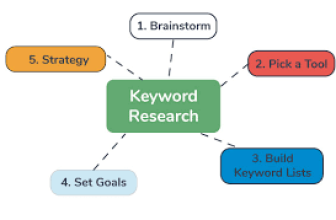
Outline
H1: Introduction
- Importance of Holocaust Memorial Day.
- Role of the British Royal Family in remembrance and global awareness.
H2: The Significance of Holocaust Memorial Day
- Overview of the Holocaust Memorial Day.
- Why global remembrance is crucial.
- Key themes of the 2025 commemoration.
H2: Prince William and Kate Middleton’s Ceremony in London
H3: Event Overview
- Details of the ceremony attended by the Prince and Princess of Wales.
- Symbolism of their attendance.
H3: Meeting Holocaust Survivors
- Emotional impact of survivor stories.
- The importance of personal narratives in preserving history.
H3: Educational Initiatives Supported
- Highlighting the Royal Family’s dedication to Holocaust education.
- Support for organizations like the Holocaust Educational Trust.
H2: King Charles’ Historic Visit to Auschwitz
H3: The Significance of the Visit
- First British monarch to visit Auschwitz.
- Symbolic timing on the 80th anniversary of liberation.
H3: Reflection and Remembrance
- King Charles’ message during the visit.
- Role of royal presence in promoting global awareness.
H3: Personal Connection to History
- Royal Family’s ties to World War II remembrance.
- Advocacy for historical preservation.
H2: The Broader Impact of the Royal Family’s Involvement
H3: Promoting Global Unity
- Bridging communities through shared remembrance.
- International reaction to the Royal Family’s involvement.
H3: Raising Awareness Among Younger Generations
- Encouraging youth participation in Holocaust education.
- Initiatives to keep the memory alive.
H2: Holocaust Education and the Future
H3: The Role of Education in Combating Hate
- Addressing anti-Semitism through education.
- Long-term impact of Holocaust remembrance.
H3: Contributions of Survivors and Their Stories
- Importance of survivor testimonies.
- Documenting stories for future generations.
H1: Conclusion
- Reflection on the Royal Family’s role in remembrance.
- Call to action for global awareness and education.
H1: FAQs
- Why is Holocaust Memorial Day important?
- What role does the British Royal Family play in Holocaust remembrance?
- What was significant about King Charles’ visit to Auschwitz?
- How does the Royal Family support Holocaust education?
- What can individuals do to contribute to Holocaust remembrance?
Royal Family Commemorates Holocaust Memorial Day: A Historic Tribute to Remembrance
Introduction
Holocaust Memorial Day is a solemn occasion that serves as a stark reminder of the atrocities committed during one of history’s darkest periods. It’s not just about looking back; it’s about ensuring that such tragedies are never repeated. This year, the British Royal Family played a pivotal role in commemorating the day, highlighting the importance of remembrance and education. Prince William and Kate Middleton attended a heartfelt ceremony in London, while King Charles made history with a poignant visit to Auschwitz on the 80th anniversary of its liberation.
The Significance of Holocaust Memorial Day
Holocaust Memorial Day honors the six million Jewish victims of the Holocaust, along with millions of others who suffered under Nazi persecution. It is a day to reflect on the consequences of hatred, discrimination, and indifference. The theme for 2025, “Light in the Darkness,” emphasizes hope and resilience amidst unimaginable suffering. By participating in this global commemoration, the Royal Family underscores the importance of remembrance in fostering understanding and unity.
Prince William and Kate Middleton’s Ceremony in London
Event Overview
The Prince and Princess of Wales attended a moving ceremony in London to honor Holocaust Memorial Day. The event, marked by solemnity and reflection, brought together survivors, community leaders, and dignitaries to pay tribute to those who lost their lives. Their presence signified the Royal Family’s enduring commitment to remembrance and education.
Meeting Holocaust Survivors
One of the most poignant moments of the ceremony was Prince William and Kate Middleton’s interaction with Holocaust survivors. Listening to firsthand accounts of survival and resilience was both humbling and inspiring. Survivors shared stories of courage, loss, and hope, emphasizing the importance of keeping these narratives alive for future generations.
Educational Initiatives Supported
The Royal Family has long been an advocate for Holocaust education. Prince William and Kate’s involvement extends to supporting organizations like the Holocaust Educational Trust, which works tirelessly to ensure that the lessons of the Holocaust are never forgotten. Their dedication to such initiatives highlights the importance of education in combating hate and prejudice.
King Charles’ Historic Visit to Auschwitz
The Significance of the Visit
In a historic first, King Charles visited Auschwitz, the infamous Nazi concentration and extermination camp in Poland. This visit marked a significant milestone, as it was the first time a British monarch had set foot on the site. The timing, coinciding with the 80th anniversary of the camp’s liberation, added profound meaning to the occasion.
Reflection and Remembrance
During his visit, King Charles laid a wreath at the site, paying his respects to the victims of the Holocaust. His message emphasized the importance of remembering the past to build a better future. The visit served as a powerful reminder of the horrors of genocide and the need for continued vigilance against hatred and intolerance.
Personal Connection to History
The Royal Family has always maintained a strong connection to World War II remembrance. King Charles’ visit to Auschwitz reinforced the family’s dedication to preserving history and promoting understanding. His presence highlighted the role of the monarchy in fostering unity and reconciliation.
The Broader Impact of the Royal Family’s Involvement
Promoting Global Unity
The Royal Family’s participation in Holocaust Memorial Day extends beyond national borders. Their involvement serves as a unifying force, bringing together communities to reflect on shared history and collective responsibility. The international response to their actions underscores the global significance of remembrance.
Raising Awareness Among Younger Generations
By engaging with young people and supporting educational initiatives, the Royal Family ensures that the lessons of the Holocaust remain relevant. Programs like school visits and survivor talks inspire younger generations to learn from history and stand against hatred in all its forms.
Holocaust Education and the Future
The Role of Education in Combating Hate
Education is a powerful tool in preventing future atrocities. By teaching the history of the Holocaust, society can confront prejudice and promote tolerance. The Royal Family’s advocacy for education plays a crucial role in fostering a more inclusive and understanding world.
Contributions of Survivors and Their Stories
Survivors are the living voices of history. Their stories provide invaluable insights into the realities of the Holocaust, ensuring that the past is never forgotten. Efforts to document and share these testimonies are vital in preserving their legacy for future generations.
Conclusion
The British Royal Family’s involvement in Holocaust Memorial Day serves as a poignant reminder of the importance of remembrance and education. Through their actions, they honor the victims, support survivors, and inspire global efforts to combat hate and intolerance. Let us all take a moment to reflect, learn, and commit to building a world where such tragedies are never repeated.
FAQs
Why is Holocaust Memorial Day important?
Holocaust Memorial Day honors the victims of the Holocaust and promotes awareness to prevent future atrocities.What role does the British Royal Family play in Holocaust remembrance?
The Royal Family raises awareness, supports education, and participates in events to honor victims and survivors.What was significant about King Charles’ visit to Auschwitz?
King Charles’ visit marked the first time a British monarch visited Auschwitz, symbolizing a historic commitment to remembrance.How does the Royal Family support Holocaust education?
They engage with organizations like the Holocaust Educational Trust and promote survivor stories and educational programs.What can individuals do to contribute to Holocaust remembrance?
People can participate in memorial events, educate themselves and others, and support organizations dedicated to Holocaust education.








